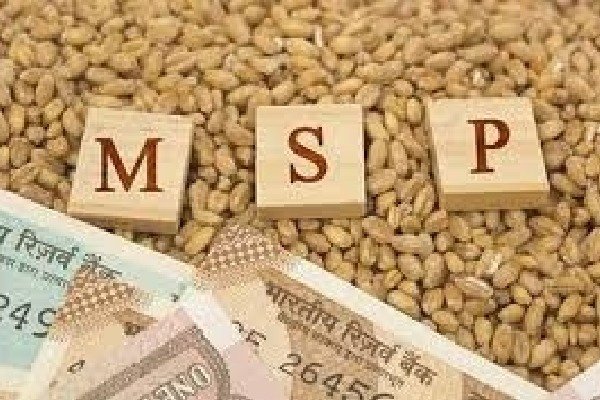Amidst ongoing farmers’ protests and escalating tensions, the formation and fate of the Minimum Support Price (MSP) Panel in India have become central issues in the discourse surrounding agricultural policies and farmer welfare. The announcement of the MSP Panel by the central government came seven months after farmers called off their protest at the Delhi borders in 2021. Released on July 12, 2022, the notification highlighted the committee’s objectives, including promoting zero-budget-based farming and enhancing transparency and efficiency in MSP allocation.
However, notable in its absence from the notification was any mention of a legal guarantee of MSP to farmers. Instead, the focus was on restructuring crop patterns to meet evolving national needs and enhancing the effectiveness and transparency of MSP allocation. The Ministry of Agriculture and Farmers Welfare outlined the committee’s composition to include representatives from the central and state governments, farmers, agricultural scientists, and economists.
Led by former Agriculture Secretary Sanjay Aggarwal, the MSP Panel comprised members from diverse backgrounds, including agricultural economists such as Dr. C.S.C. Shekhar, Dr. Sukhpal Singh, and Bharat Bhushan Tyagi, among others. Additionally, representatives from NITI Ayog, IFFCO, CNRI, and the Commission for Agricultural Costs and Prices (CACP) were included. This diverse composition aimed to provide comprehensive insights and perspectives to address the challenges facing MSP implementation and agricultural policy in India.
However, the fate of the MSP Panel has come into question amidst the ongoing farmers’ protests and their demands for MSP legalization and implementation of the Swaminathan report recommendations. As thousands of farmers march towards Delhi to voice their grievances, concerns have been raised about the exclusion of representatives from the Samyukt Kisan Morcha (SKM) from the committee.
The absence of SKM members from the MSP Panel has intensified the distrust between farmers and the government, exacerbating the already strained relationship. Farmers view the exclusion as a lack of genuine intent by the government to address their concerns and negotiate in good faith. The protests have underscored the deep-rooted issues within India’s agricultural sector, including inadequate MSP, agricultural reforms, and farmer welfare.
The government’s failure to include SKM representatives in the MSP Panel has further fueled skepticism about the panel’s effectiveness and its ability to address farmers’ demands adequately. Farmers argue that without genuine representation from their community, the panel’s recommendations may not reflect the ground realities or address the systemic challenges plaguing Indian agriculture.
Moreover, the exclusion of SKM members from the MSP Panel highlights broader issues of representation and inclusivity in policymaking processes. Farmers, as key stakeholders in the agricultural sector, deserve a seat at the table to voice their concerns and contribute to policy decisions that directly impact their livelihoods. The absence of such representation undermines the democratic principles of governance and diminishes the credibility of the MSP Panel in the eyes of the farming community.
In light of the ongoing protests and escalating tensions, there is an urgent need for dialogue and meaningful engagement between the government and farmers to address their grievances and find sustainable solutions. The fate of the MSP Panel hinges on the government’s willingness to prioritize farmers’ concerns and incorporate their perspectives into agricultural policies effectively.
As farmers continue to mobilize and demand their rights, the formation and functioning of the MSP Panel serve as a critical juncture in India’s agricultural landscape. It is imperative for the government to demonstrate genuine commitment to farmer welfare and inclusivity in decision-making processes to pave the way for meaningful reforms and sustainable agricultural development.
